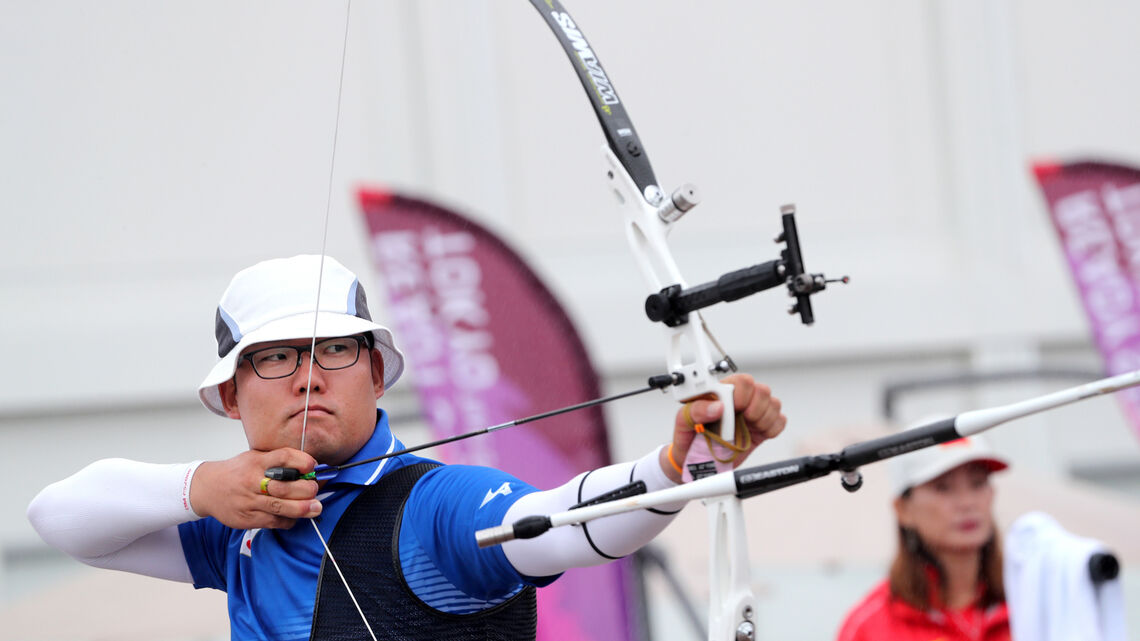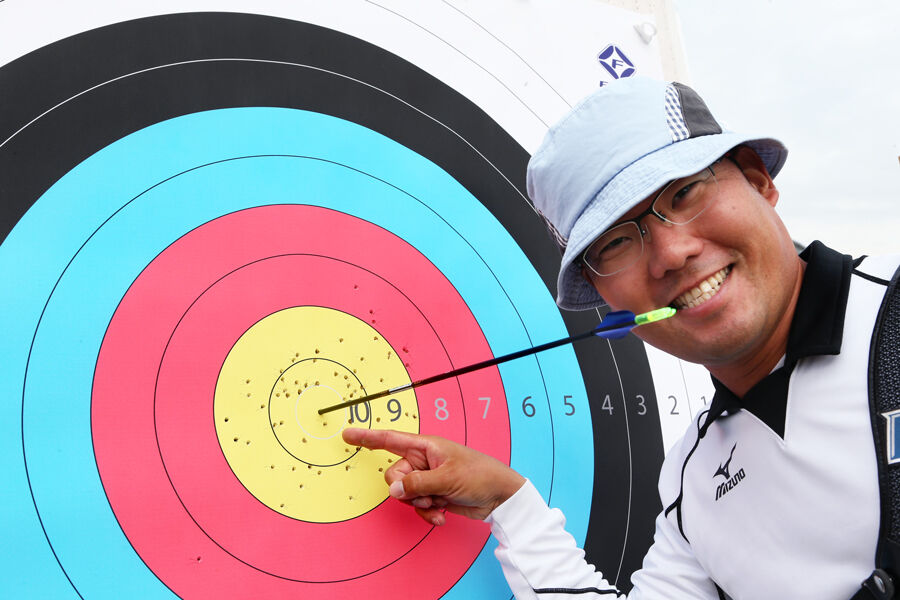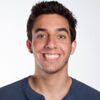Four-time Olympian Furukawa faces unprecedented expectations in Tokyo

All eyes will be on Takaharu Furukawa when he steps to the line at Yumenoshima Park Archery Field next summer.
The senior member of the Japanese recurve archery team can expect an unprecedented level of pressure when the world convenes for the postponed Tokyo 2020 Olympic Games. He’s still got to make the squad picked for the event, of course, but he’s a heavy favourite to make a fifth straight Games at the age of 36.
Past Olympic team members, including legendary Olympic medallist Hiroshi Yamamoto and world performers Kaori Kawanaka and Yuki Hayashi, have already been eliminated from the selection process.
But, so far, Furukawa has prevailed, advancing to the third and last phase alongside a group of younger shooters as they battle for the privilege of representing their country on home soil.
“I’m really happy that my country is hosting the Games,” said Furukawa, who emulated the best performance by a Japanese archer at the Olympics when he won silver at London 2012. "It doesn't matter that the Olympic date has changed. My goals have not changed. I’m looking forward to the additional growth of another year.”
Furukawa professes modesty when discussing expectations.
The already-four-time Olympian claims to aspire for a finish in the top eight next summer, just as he has when forecasting previous Olympics – a result that seems pedestrian when considering his past accomplishments.
The thinking, he says, is to strive for consistency. Applying extra pressure to succeed, while understandable, will only lead to disappointment.
But the arrival of the Games in Tokyo brings with it an additional weight that will be difficult to ignore.
The Olympics already inject a greater dosage of attention than archers are accustomed to – the onslaught of media requests and the shuttering of cameras in the periphery distinguishing the Olympics from other high-profile tournaments.
A Japanese man has never won individual Olympic gold in archery. Competing in front of a capacity crowd of 5600 people would be a memorable way to change that.
“Peoples’ support and encouragement always provide great energy, and I’m expecting this to give me more power than usual,” said Furukawa. “This is a chance for me to be stronger. More pressure means more opportunity for growth.”
Furukawa’s decisive mixed team victory at the 2018 Asian Games in Indonesia, where he took gold in tandem with Tomomi Sugimoto, is a promising sign for the future. The 36-year-old hopes his deep reservoir of experience, including a third-place finish at the Copenhagen 2015 World Championships, will serve as an asset as well.

The world number 12 has not missed an Olympics since Athens 2004, when his teammate, Yamamoto, became the fourth Japanese man to win a silver medal. Furukawa is the third, having reached the gold medal match at his third Games after defeating Rick van der Ven of the Netherlands in dramatic fashion.
Competing at Lord’s Cricket Ground, Furukawa was among the most consistent athletes on the field. He qualified in fifth place and ascended quickly to the semifinal match against the Dutchman.
Furukawa trailed 3-5 after four sets – but clawed back to even the score at 5-5, forcing a single-arrow shoot-off. The Japanese archer won that with a 10 to van der Ven’s nine – and booked himself into the final while guaranteeing a podium finish.
“His mental game was really good that day,” van der Ven said of Furukawa, who ultimately fell to Korea’s Oh Jin Hyek in an historic final. “To come back from such a big disadvantage and end up winning it – much respect for that match.”
Furukawa exhibited similar mental fortitude during the second stage of Japan’s Olympic trials, in March. Battling harsh winds that led to upsets of several veteran favourites, Furukawa shot a miss in the first round and was in danger of being eliminated. But the experienced international steadily recovered over the multiple 70-metre rounds, eventually reaching the top of the selection rankings.
“He doesn't let himself get too down,” said van der Ven said. “You have to shoot at a high level if you want to beat him.”
Seeded seventh at Rio 2016, Furukawa dropped just a single set point through his first two matches. He then beat Juan Rodriguez, 7-3, before losing a four-set quarterfinal to second seed Brady Ellison, who would later claim the bronze medal.
Furukawa cited the added media attention when explaining why he wasn't able to repeat as a medallist.
He was overwhelmed by media reports identifying him as an archer with the potential to win gold, he said. The added attention made it difficult for him to calm his heart rate, focus his concentration and overcome the nerves that hit in the Olympic arena.
In Japan, passing cyclists would even stop to shake his hand.
“I get nervous thinking too much about results,” said Furukawa. “A weak mentality is the main obstacle. If I just focus on myself and believe I have the power, I can overcome this challenge.”
And then there is the pandemic to account for. The gulf between shooting in front of spectators and cameras or not is vast – and it will only be larger while competing in a stadium overflowing with Japanese fans.
Nonetheless, Furukawa is confident he will rise to the occasion and perform well under the additional pressure. He has taken the postponement as an opportunity to strive for a better outcome in Tokyo.
“The field of play has a special atmosphere,” said Furukawa. “I’m looking forward to the experience. I can’t wait.”












